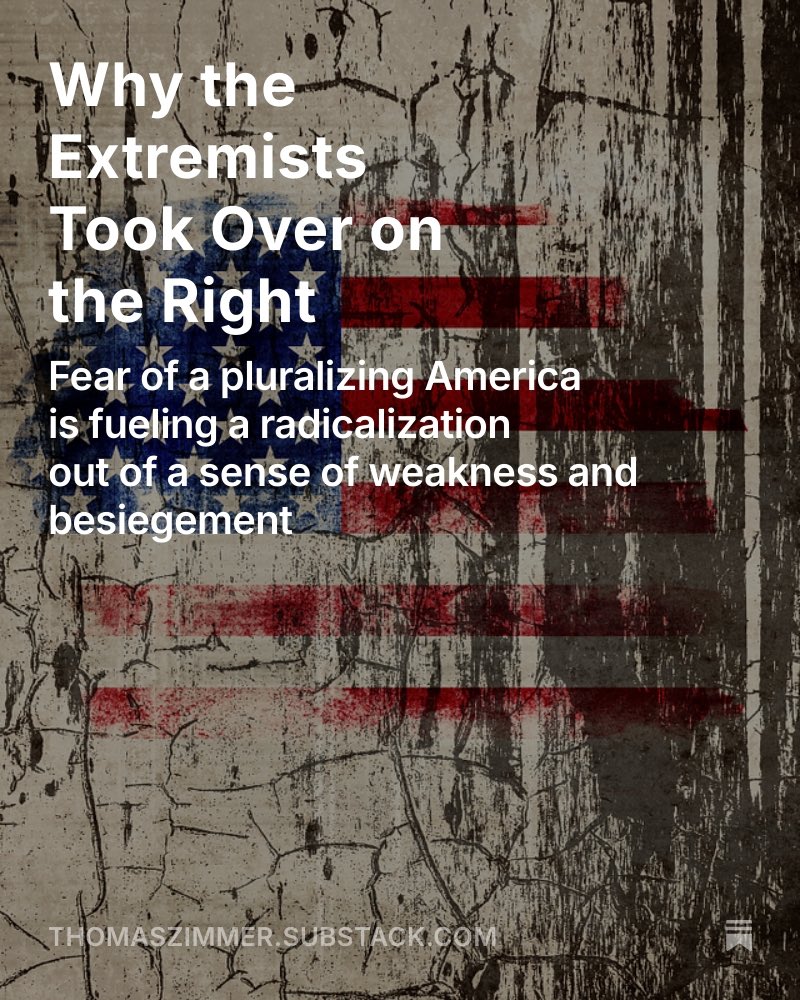This type of rhetoric precisely captures what’s animating a large segment of the Republican Party and the conservative movement: Either “We” win or “They” will destroy America (as a country defined by white Christian rule). Who cares about “democracy”? #GOPextremism
https://twitter.com/PhilBryantMS/status/1212745321387843584
And, of course, none of this is new or specific to the Trump era - it has very much been the founding principle of modern conservatism
https://twitter.com/kevinmkruse/status/1212863310099599361?s=21https://t.co/LvikYPaoZw
As evidence for how little any of this has to do with Trump, here’s Rod Dreher, a “serious intellectual” who says he abhors the president, professing that opposing the “left” still trumps (ahem...) everything
https://twitter.com/amconmag/status/1212908938468814848?s=21https://t.co/lriF9RGPKG
This Dreher piece is truly something. To him, Trumpism and the “far left” (by which he means the Democratic Party, even Joe Biden) are equally radical - no “moderates” left to choose from. To make clear what a difficult choice he and his fellow conservatives face, he says this:
“As a priest, you might have had big problems with Gen. Franco, but if you didn’t side with him, you stood to be shot by the left-wing Republicans, and have your church burned down. Mind you, nobody’s going to get shot or have their churches burned down here...” I mean, what?
I mean, leave aside this, uhm, questionable portrayal of the Spanish Civil War. But what type of argument is this? “I have to go with the rightwing authoritarian because otherwise I’ll get killed - only of course I won’t... but still!” Huh?
What I find most striking about the position of “socially conservative Christians” like Dreher is how brazenly anti-democratic it is. For him, it all comes down to the judges Trump puts on the bench - who, Dreher hopes, will act as “the only line of defense” against... democracy!
As Dreher puts it, as “the country is going to start voting a lot more liberal as the Boomers die,” he needs those Trump judges to fight against the liberalization of the country. Democracy though? Not something worth protecting, it seems.
Dreher says he has a bad conscience for voting for the moral abomination that is Trump. I just wish he would also reflect more critically on a position that amounts to “If democracy goes against me, I’m gonna go against democracy and with Trump.” He doesn’t. That’s telling.
• • •
Missing some Tweet in this thread? You can try to
force a refresh






